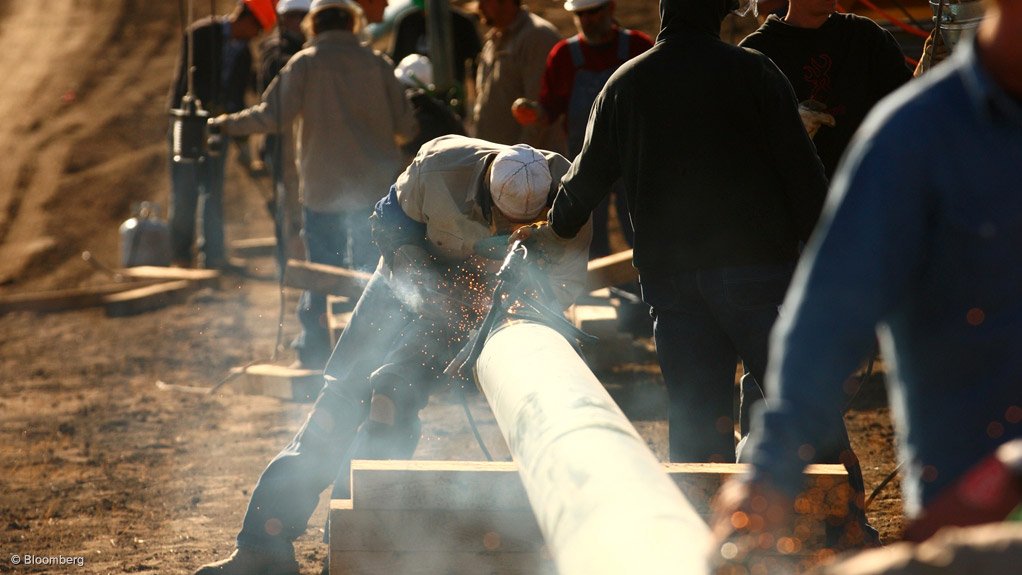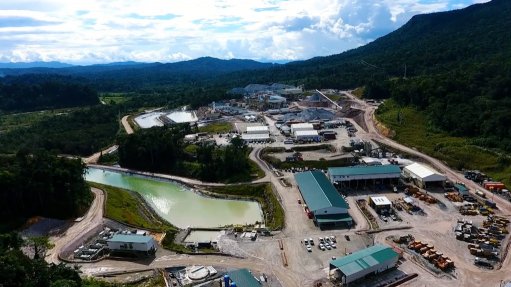As need to reach foreign markets intensifies, Canadian oil industry isolated from Treaty Alliance threats
VANCOUVER (miningweekly.com) – Global demand for energy is expected to rise some 32% by 2040 and more than a quarter of that increase will be met by oil, raising the stakes for the Canadian oil industry to diversify its markets.
According to the Canadian Association of Petroleum Producers (CAPP), the lion’s share of demand will come from China and India, with their combined consumption expected to increase by more than 10.8-million barrels a day by 2040.
Canada does not ship oil to either country, underscoring its reliance on its sole customer, the US, which itself is poised to become one of the most significant oil and natural gas producers globally, meaning its biggest customer will become its biggest competitor.
DEVELOPMENT CHALLENGE
Any expansion of Canada’s oil sands, which is currently the third-largest oil resource in the world, faces an uphill battle as a result of growing and organised resistance by Aboriginal and First Nation groups across Canada and the northern US.
Just last week, these groups adopted the Treaty Alliance Against Tar Sands Expansion, seeking to officially prohibit and collectively challenge and resist oil sands industry expansion.
However, some commentators see this as nothing new, observing that this is a US-inspired campaign against the oil sands that is rooted in semantics, by calling it the tar sands.
“That aside . . . I don't think this will impact much at all. The Canadian energy industry has always not only been an environmental leader, but one that is sensitive to indigenous land and tradition. Moreover, the industry employs thousands of native Canadians,” Auspice Capital Advisors founder and CIO Tim Pickering tells Mining Weekly Online.
He notes that it is yet another of many efforts to target Canadian production for “ill-informed” reasons.
The CAPP producers have also said the Treaty Alliance will not change the way its members do business with Indigenous communities. "We will continue to engage indigenous communities directly or through a predetermined regulatory process and are committed to answering all questions on oil sands development and transportation," the CAPP said in an emailed statement.
Pickering points out that Canadian companies have a long history of working with First Nations communities and says that will not change.
In Canada, the oil sands producers have direct business with more than 300 aboriginal businesses and have generated over C$10-billion in revenue over the past 14 years. The CAPP noted that there were no signatories to the Treaty Alliance in the major producing jurisdictions in Alberta and Saskatchewan.
“Oil from Alberta is the safest, longest-lasting reserve known today globally. Moreover, Canada has a long history of innovation and leadership from an environmental and native rights perspective. We are very bullish on the Canadian oil industry. Remember, oil and resources in general are owned by all Canadians – and the agenda of a few should not thwart the social progress of Canada as a whole,” Pickering asserted.
RESPONSIBLE OIL
According to Pickering, Canada’s oil producers will continue to produce some of the safest, most responsible and most environment-conscious oil.
“Alberta produces a fraction of the emissions that individual states like California do. We are already green and potentially getting greener. This makes our already discounted oil even more attractive globally. It may be a burden on producers, yes – depending on their situation. However, politics aside, it shouldn't make us materially less competitive,” he notes.
For Canadian oil producers, the key to future success is to reach buyers beyond Canada’s current landlocked reality. Further, by creating tools such as exchange-traded funds to access this market, the industry hopes to develop further legitimate investment options in "pure play" Canadian oil.
CYCLIC INDUSTRY
Canadian producers, like their global peers, need to become more efficient to ride out the cycles inherent in the industry, Pickering says, encouraging producers to use hedging to smooth revenue flows.
He explains that commodities such as crude oil, trade in cycles of high and low price periods, due to supply and demand. In recent years, the market became oversupplied as producers chased higher prices. This caused many previously uneconomic plays to emerge, with producers building their businesses on $80+ West Texas Intermediate oil prices.
However, now at less than $50/bl, many of these initiatives are again no longer economic. As a result, companies are not producing, are reducing production or disappearing altogether. Pickering notes that the cycle will continue to perpetuate – less oil is produced, getting supply and demand back into line.
“Fortunately, it is better to be in an 'oversupply' situation than a 'lack of demand' situation, as supply is more elastic and adjusts quicker,” he says, noting that, in this case, output is falling in many regions outside of the Organisation of the Petroleum Exporting Countries.
"The best cure for low oil prices is low oil prices,” Pickering jests.
Comments
Announcements
What's On
Subscribe to improve your user experience...
Option 1 (equivalent of R125 a month):
Receive a weekly copy of Creamer Media's Engineering News & Mining Weekly magazine
(print copy for those in South Africa and e-magazine for those outside of South Africa)
Receive daily email newsletters
Access to full search results
Access archive of magazine back copies
Access to Projects in Progress
Access to ONE Research Report of your choice in PDF format
Option 2 (equivalent of R375 a month):
All benefits from Option 1
PLUS
Access to Creamer Media's Research Channel Africa for ALL Research Reports, in PDF format, on various industrial and mining sectors
including Electricity; Water; Energy Transition; Hydrogen; Roads, Rail and Ports; Coal; Gold; Platinum; Battery Metals; etc.
Already a subscriber?
Forgotten your password?
Receive weekly copy of Creamer Media's Engineering News & Mining Weekly magazine (print copy for those in South Africa and e-magazine for those outside of South Africa)
➕
Recieve daily email newsletters
➕
Access to full search results
➕
Access archive of magazine back copies
➕
Access to Projects in Progress
➕
Access to ONE Research Report of your choice in PDF format
RESEARCH CHANNEL AFRICA
R4500 (equivalent of R375 a month)
SUBSCRIBEAll benefits from Option 1
➕
Access to Creamer Media's Research Channel Africa for ALL Research Reports on various industrial and mining sectors, in PDF format, including on:
Electricity
➕
Water
➕
Energy Transition
➕
Hydrogen
➕
Roads, Rail and Ports
➕
Coal
➕
Gold
➕
Platinum
➕
Battery Metals
➕
etc.
Receive all benefits from Option 1 or Option 2 delivered to numerous people at your company
➕
Multiple User names and Passwords for simultaneous log-ins
➕
Intranet integration access to all in your organisation





















